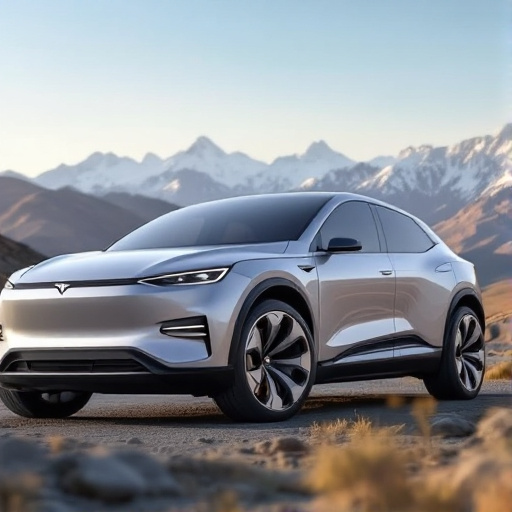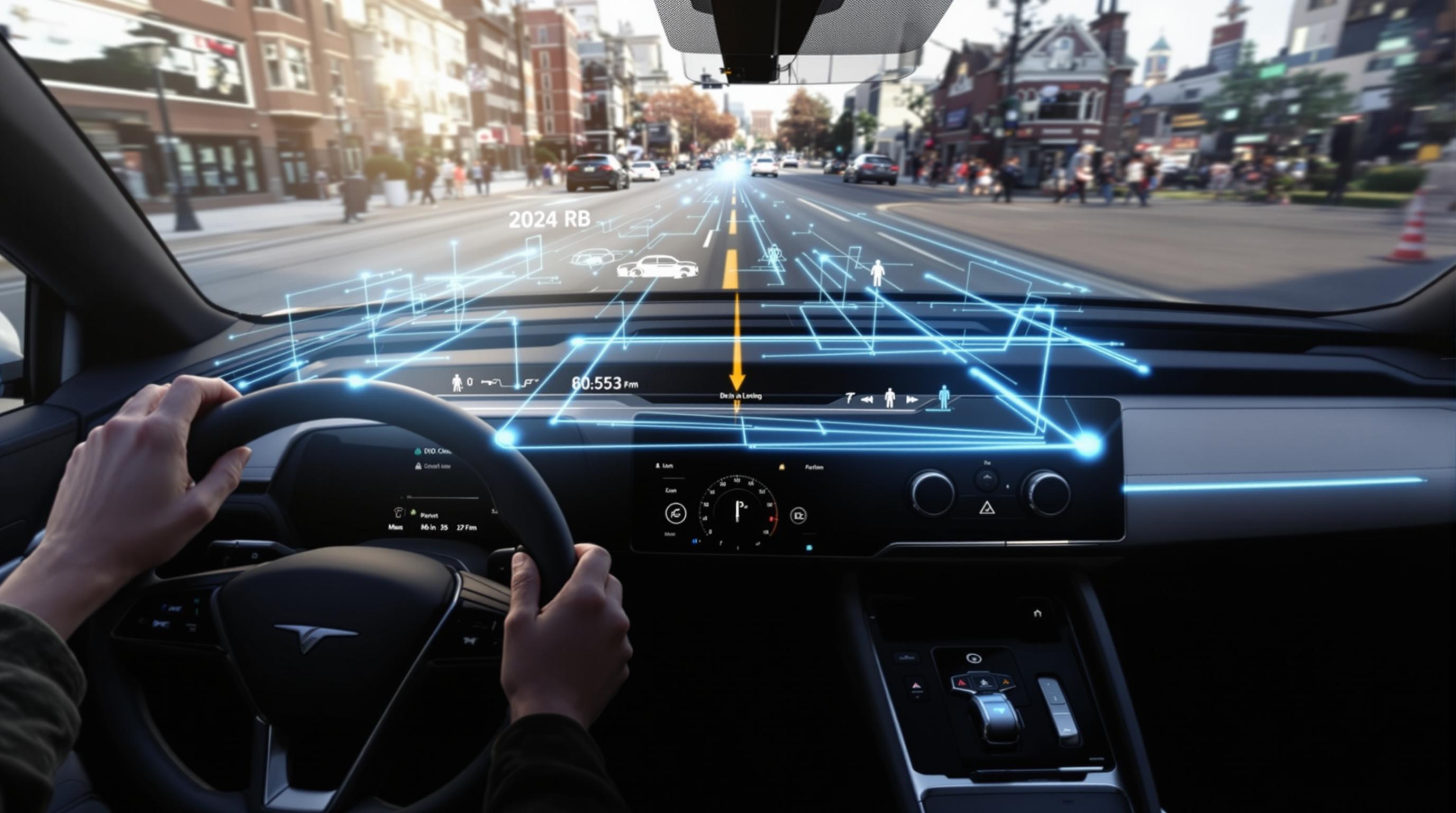Related Articles
- Charged Up! How Electric Vehicles are Reshaping Urban Wildlife Habitats and Biodiversity
- Navigating the Used Car Market: Uncovering the Secrets of 'As-Is' Sales for Savvy Buyers
- The Rise of Electric Car Pop-up Shops: A New Frontier for Urban Retail Experiences
- The Forgotten Art of DIY Car Maintenance: Rediscovering Skills in a Tech-Driven World
- Electric vs. Vintage: The Battle for Enthusiasts' Hearts in the Age of Latest Car Models
- The Rise of the 'Car Review Influencer': How Social Media is Shaping Auto Buying Decisions
The Rise of Electric SUVs: Are We Ready for the Future of Eco-Friendly Family Cars?
The Rise of Electric SUVs: Are We Ready for the Future of Eco-Friendly Family Cars?
As electric vehicles (EVs) gain traction, electric SUVs are becoming increasingly popular for families seeking eco-friendly transportation solutions. This article explores the rise of electric SUVs, their benefits, challenges, and whether we are ready to embrace them as the future of family cars.
The Popularity of Electric SUVs: A Statistical Overview
The electric SUV market has been on a meteoric rise, and recent statistics illustrate this. According to the International Energy Agency (IEA), electric SUVs made up 28% of global electric vehicle sales in 2022, up from just 12% in 2020. By 2023, sales trends suggest this number could surpass 30% as more manufacturers enter the market with competitive models.
What Drives the Demand for Electric SUVs?
As we dive into the crevices of consumer behavior, we find several compelling reasons behind the surge in electric SUVs:
- Family-oriented Design: With generous cargo space and spacious interiors, electric SUVs cater to the needs of families, accommodating their lifestyles while offering sustainable alternatives.
- Enhanced Range: The development of long-range batteries has addressed the "range anxiety" issue that once plagued electric cars. Popular models like the Tesla Model Y and Ford Mustang Mach-E now offer over 300 miles of range (source: Tesla, Ford).
- Government Incentives: Many governments worldwide are incentivizing the purchase of electric vehicles through tax breaks and rebates, making electric SUVs more financially accessible.
Case Study: Tesla's Role in Changing the Game
When we talk about electric vehicles, it's impossible not to mention Tesla. Founded in 2003, Tesla shook up the auto industry with their sleek designs and cutting-edge tech. The launch of the Model X in 2015 showcased how a family-friendly SUV could also be environmentally responsible. The Model X features a unique Falcon Wing door and impressive safety ratings, proving that electric SUVs aren't just good for the environment, but for families seeking sophistication and safety as well.
The Environmental Impact: More Than Just a Trend
Electric SUVs are more than just vehicles; they're symbols of a shift towards sustainable living. According to a study published in the journal "Nature Sustainability," electric vehicles can significantly reduce greenhouse gas emissions, with estimates suggesting they could decrease transportation-related emissions by up to 60% by 2030 if adopted widely (source: Nature Sustainability).
Challenges on the Road to Electric SUVs
Despite their growing popularity, electric SUVs face significant challenges. For one, charging infrastructure remains a concern in many regions. A survey conducted by the U.S. Department of Energy revealed that about 70% of respondents worry about finding charging stations during long trips. Moreover, while the price of electric SUVs is decreasing, they are still generally more expensive than their gasoline counterparts, which may dissuade budget-conscious families.
The Range Dilemma: My Personal Experience
As a 28-year-old with a passion for the environment, I decided to take the plunge and buy an electric SUV. Initially, the excitement was contagious—the feeling of driving a car that was not only stylish but also eco-friendly. However, I quickly hit a bump in the road: I took a weekend trip to the mountains and found myself anxious about charging options. It turned out, I wasn’t alone in my concerns about range and charging stations. My experience highlighted a crucial challenge: even enthusiastic users can feel apprehensive about the current infrastructure.
Going Beyond the Vehicle: The Bigger Picture
Transitioning to electric SUVs is not just about the vehicles themselves but also about the energy we use. A significant ratio of emissions is determined by how the electricity for EVs is generated. According to the U.S. Environmental Protection Agency (EPA), if the electricity comes from renewable sources like wind or solar, the environmental benefits are magnified. Hence, the future of electric SUVs hinges not only on sophisticated vehicles but also on a robust clean energy grid.
Friendly Eco-Warriors: The Societal Impact of Electric SUVs
There’s also a social element to owning an electric SUV. According to a survey by Deloitte, 55% of millennials believe that buying eco-friendly products makes them feel like they are contributing positively to society. It’s not just about personal convenience but also about portraying a lifestyle that aligns with sustainable values.
Environmental Fears: Are Electric SUVs Really Green?
One might ask, "Isn’t the production of electric vehicles causing as much harm as traditional vehicles?" A fair question indeed. The battery production process does have environmental implications, especially concerning lithium extraction. Nevertheless, experts argue that the total lifecycle emissions of electric vehicles are still lower than their gasoline counterparts, emphasizing the importance of lifecycle assessments to capture the true environmental cost (source: The Guardian).
Making Electric SUVs Accessible for All
One approach to addressing the cost concern is to encourage automakers to introduce lower-cost models. Companies like Hyundai and Kia have entered the market with affordable EV options, like the Hyundai Ioniq 5 and Kia EV6, aimed at families rather than luxury buyers. As competition increases, prices for electric SUVs are expected to drop further, making them a viable option for a wider demographic.
The Drive Toward the Future: Are We Ready?
So, the burning question remains: Are we ready for the future of eco-friendly family cars? Family-oriented buyers are increasingly interested in sustainable options, and electric SUVs present a compelling solution. Consumer appetite is growing, and as innovations continue to emerge, it's likely that we are on the brink of a monumental shift in family transportation.
Closing Thoughts: Embracing Change
As we embrace this change, it’s imperative for us to remain informed and open-minded. Electric SUVs represent more than just another vehicle. They symbolize progress towards a future where families can prioritize sustainability without sacrificing the comforts and safety features they desire. The journey ahead will undoubtedly have its hurdles, but with collective commitment—from automakers, consumers, and policymakers alike—the era of electric SUVs can truly make a significant impact.
To Conclude: Drive Electric, Drive Clean
Imagine a world where busy parents could effortlessly haul their children and groceries while cutting down their carbon footprint. That dream is today’s reality with electric SUVs, and the time to join the eco-friendly movement is now. The question of readiness is not just about the cars but about our readiness to embrace a lifestyle that prioritizes sustainability for future generations. So let’s buckle up and drive into this green future together!




